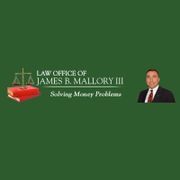Answers to Common FAQ About Chapter 13 Bankruptcy

If you’ve fallen behind on your mortgage, car loans, or other debts, getting your finances back on track can seem nearly impossible. Fortunately, a Chapter 13 bankruptcy may provide a route to solvency by allowing you to catch up on delinquent accounts through a court-managed repayment plan. Below are answers to some common questions about this vital debt relief program.
Common FAQ About Chapter 13 Bankruptcy
Will I have to surrender my assets?
 A Chapter 13 bankruptcy creates an avenue to pay back many of your debts, so you won’t have to surrender any of your belongings. This makes Chapter 13 a better choice for those with significant assets they may not want to lose.
A Chapter 13 bankruptcy creates an avenue to pay back many of your debts, so you won’t have to surrender any of your belongings. This makes Chapter 13 a better choice for those with significant assets they may not want to lose.
Can I still discharge my unsecured debts?
While paying back your secured debts, you may discharge credit cards, personal loans, back taxes, and some other unsecured accounts. However, these creditors must receive at least as much as they would have if you’d surrendered assets in a Chapter 7 bankruptcy.
How much will my payments be?
Your monthly bankruptcy payments will vary, depending on the amount you owe, your income, and the length of your plan. Generally, the court will expect you to dedicate all of your disposable income to your bankruptcy payments.
How will an attorney help?
Filing for Chapter 13 bankruptcy can be extremely complex, so you should always let an attorney prepare your petition. They’ll create a plan the court will likely accept, help put a stop to any collections activity, and ensure that all of your eligible debts are included.
For nearly 30 years, struggling borrowers throughout the Statesville, NC area have relied on the Law Office of James B. Mallory III for debt relief help. Whether you’re hoping to liquidate your debts or file for chapter 13 bankruptcy, their team will help you find the best path forward. Visit their website for more on their bankruptcy services, or call (704) 872-1911 to speak with an attorney and schedule a consultation.
About the Business
Have a question? Ask the experts!
Send your question

